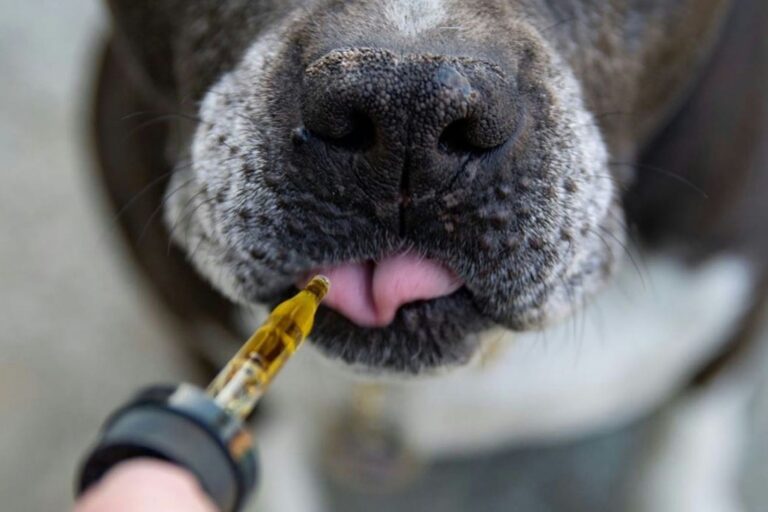The Most Common Health Issues in Large-Breed Dogs (And How to Prevent Them)

Large-breed dogs make wonderful companions — full of love, loyalty, and personality. But because of their size, they can face a few health challenges along the way. The good news is that with a little extra care and some smart choices, you can help prevent problems, save on vet bills, and keep your big buddy happy and healthy for years to come.
1. Hip and Elbow Dysplasia
Large dogs are particularly susceptible to hip and elbow dysplasia, a hereditary condition in which the joints do not form correctly. Improperly formed joints can lead to abnormal wear over time, resulting in pain, stiffness, inflammation, and eventually osteoarthritis. Early management and preventive strategies are key to reducing the impact of this condition and supporting long-term mobility.
Prevention Tips:
- Balanced nutrition for growing puppies: Large-breed puppies grow rapidly, and excessive calcium or calories can contribute to abnormal bone development. Choosing a diet formulated for large breeds with controlled calcium and phosphorus helps promote proper skeletal growth and reduces the risk of joint disorders later in life.
- Joint-supporting nutrients: Supplements containing glucosamine and chondroitin can help maintain cartilage health, improve joint flexibility, and slow degenerative changes. Omega-3 fatty acids also help reduce joint inflammation, supporting comfort and mobility. Check out the top 5 supplements every large dog should take here.
- Healthy body weight: Excess weight increases mechanical stress on the hips and elbows, accelerating joint wear and contributing to early-onset arthritis. Monitoring portions, feeding appropriate meals, and maintaining an ideal weight are critical components of joint preservation. Read more about maintaining a healthy weight here.
2. Bloat (Gastric Dilatation-Volvulus)
Large dogs, particularly deep-chested breeds like Great Danes, Dobermans, and German Shepherds, are at higher risk for bloat (gastric dilatation-volvulus). Bloat occurs when the stomach fills with gas and sometimes twists, which can be life-threatening. Understanding the risk factors and early warning signs is crucial for prevention and timely intervention.
Prevention Tips:
- Feed smaller, frequent meals: Large meals can increase the risk of the stomach expanding too quickly. Slow feeder bowls like the Outward Hound Slow Feeder Bowl for large dogs can help reduce the speed of eating and prevent excessive air intake.
- Limit vigorous activity after meals: Avoid running, playing fetch, or intense exercise immediately after eating. Physical activity too soon after a meal can contribute to stomach twisting.
- Recognize early warning signs: Restlessness, drooling, a distended or hard belly, and unproductive vomiting are red flags. If these symptoms appear, seek veterinary attention immediately, as bloat can progress rapidly.
- Additional considerations: Some owners choose preventive measures such as gastropexy surgery in high-risk breeds. Routine veterinary checkups and monitoring eating habits also help reduce risk.
Tip: Pet insurance for large-breed dogs can provide coverage for emergency procedures, giving peace of mind in case of a life-threatening event. Check out our EASY INSURANCE COMPARISON GUIDE.
3. Obesity
Extra weight isn’t just a cosmetic issue — it increases stress on your dog’s joints, heart, and internal organs. Large breeds are particularly susceptible because they generally have slower metabolisms, meaning their bodies burn calories more slowly. Carrying excess pounds over time can contribute to arthritis, cardiovascular strain, and reduced mobility, shortening your dog’s quality of life.
Prevention Tips:
- Feed a balanced large-breed diet: High-quality formulas provide essential nutrients while helping prevent unnecessary weight gain. Proper nutrition supports bone development, joint health, and overall energy levels.
- Provide regular, tailored exercise: Daily activity should match your dog’s breed, age, and energy level. Exercise strengthens muscles, supports joint stability, and helps maintain a healthy body weight.
- Limit high-calorie treats: Treats can quickly add excess calories. Choose low-calorie options and factor them into your dog’s daily intake to avoid overfeeding.
By focusing on nutrition, appropriate exercise, and mindful treats, you can help your large dog maintain a healthy weight, reduce stress on their body, and support long-term mobility and vitality. Read more about the best large-breed dog foods here.
4. Heart Disease
Certain large breeds, including Dobermans, Great Danes, and Boxers, are more susceptible to heart conditions such as dilated cardiomyopathy (DCM). In DCM, the heart muscle becomes weakened and stretched, reducing its ability to pump blood effectively. Over time, this can lead to fatigue, fluid buildup, and potentially life-threatening complications. Understanding the risks and taking preventive measures can help maintain cardiovascular health.
Prevention Tips:
- Regular veterinary checkups with cardiac monitoring: Routine exams and diagnostic tests, such as echocardiograms or electrocardiograms, help detect early signs of heart disease before serious complications develop.
- Maintain a healthy weight and activity level: Keeping your dog at an ideal weight and providing regular exercise reduces strain on the heart while supporting overall fitness and well-being.
- Support heart health with nutrition: Supplements like omega-3 fatty acids can help support cardiovascular function by reducing inflammation and promoting healthy blood flow.
Tip: By focusing on nutrition, appropriate exercise, and mindful treats, you can help your large dog maintain a healthy weight, reduce stress on their body, and support long-term mobility and vitality. Read the full blog post here.
By combining regular monitoring, proper nutrition, and healthy lifestyle habits, owners can help their large-breed dogs maintain strong hearts and enjoy a longer, healthier life.
5. Arthritis and Joint Pain
Large dogs are prone to arthritis and other joint issues, often due to years of weight-bearing and normal wear-and-tear. Extra pounds can accelerate joint degeneration, causing discomfort and limiting mobility. Supporting joint health early can help your dog stay active and comfortable as they age.
Prevention Tips:
- Maintain a healthy weight: Reducing excess weight lessens stress on hips, knees, and elbows, slowing the progression of joint problems.
- Support joints with supplements: Nutrients such as glucosamine, chondroitin, and omega-3 fatty acids can help maintain cartilage health, reduce inflammation, and improve joint flexibility.
- Encourage regular, low-impact exercise: Activities like swimming, gentle walks, or slow-paced play strengthen muscles that support joints while avoiding high-impact stress.
By focusing on weight management, joint-supporting nutrition, and safe exercise, owners can help their large dogs maintain mobility and comfort well into their senior years.
6. Preventive Care and Insurance
Preventive care is about more than just routine vet visits — it’s about identifying potential health issues early, helping your large dog live a longer, healthier life. Large breeds, due to their size and predisposition to certain conditions, benefit greatly from proactive healthcare planning. Large-breed dog insurance can provide tailored coverage for the unique needs of bigger dogs, helping owners manage the cost of preventive care and unexpected medical expenses.
Key Areas Covered by Large-Breed Insurance:
- Joint and hip treatments: Large dogs are prone to conditions like hip dysplasia and arthritis, and early intervention can preserve mobility and quality of life.
- Emergency surgery (bloat, injuries, etc.): Some health events can become life-threatening quickly. Insurance coverage ensures timely access to care when every minute counts.
- Preventive care visits: Regular checkups, screenings, and vaccinations help catch problems before they escalate, supporting long-term health and comfort.
By combining routine preventive care with thoughtful insurance coverage, owners can reduce financial stress while ensuring their large dogs receive the care they need to stay healthy, active, and comfortable. Check out our EASY INSURANCE COMPARISON GUIDE to find the right insurance for your dog.
Some links help to support our site at no extra cost to you. Thanks for helping us share more pet love! ❤️





